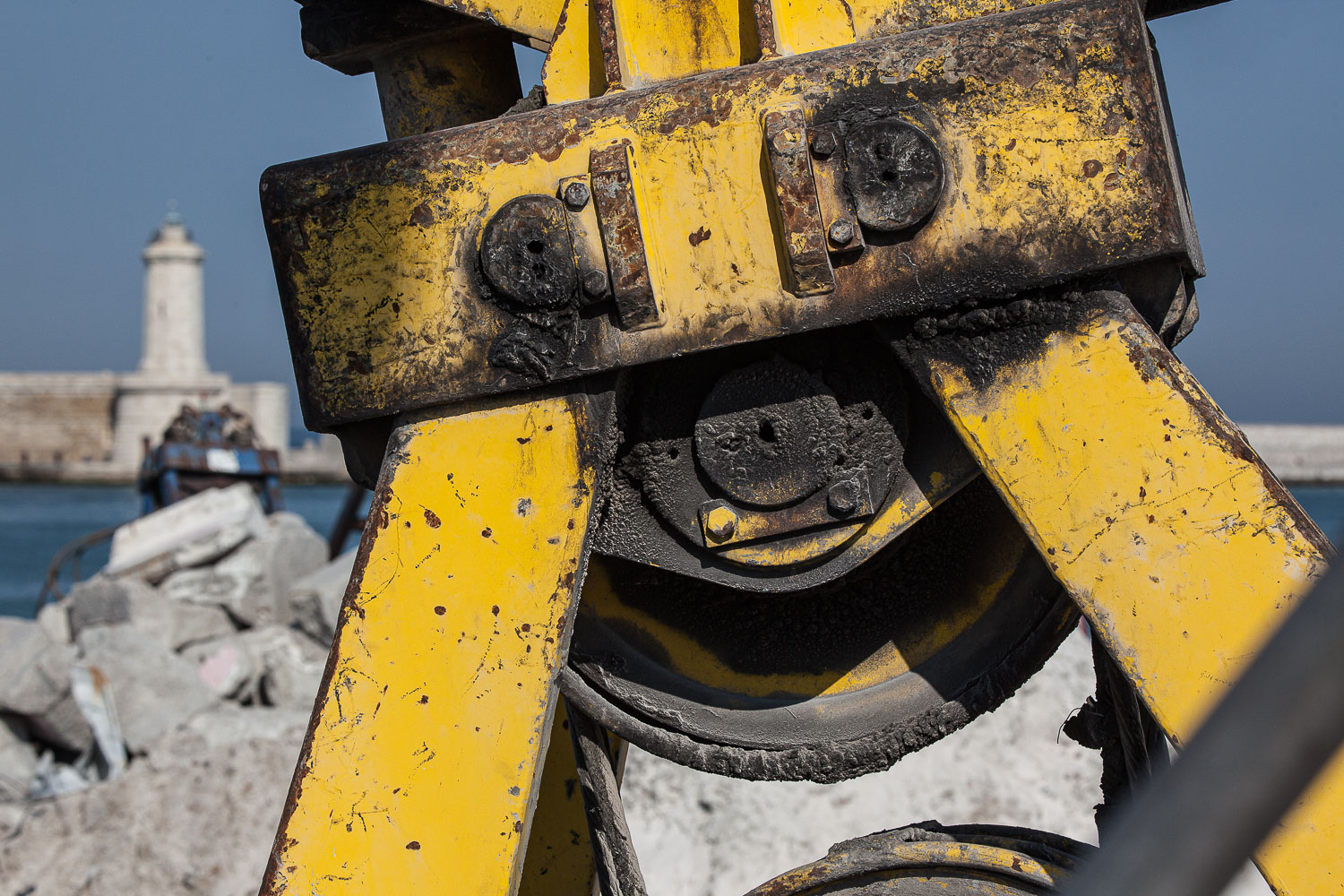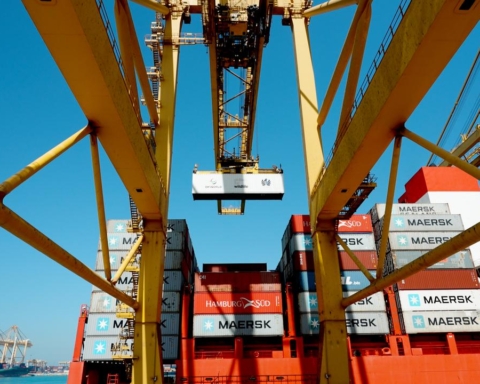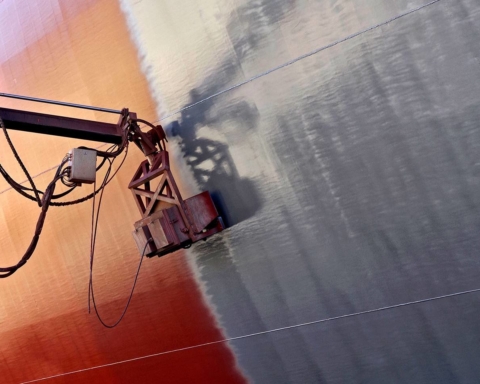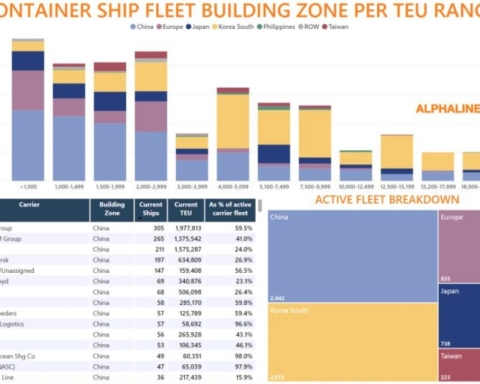“Are the processes of oligopolization and concentration we are currently witnessing socially sustainable?” Nereo Marcucci asks himself this with the seriousness of the Christian who questions grace under Port Royal influence
In Livorno, in his consultant’s office, the former president of Confetra, now a member of the National Council for Economics and Labour (CNEL), shows me a press release of all the European Associations representing the supply chain and shippers: “All – in no uncertain terms – challenge, with decisive legal arguments, the ‘technical’ conclusions that would allow the European Commission to renew sic et simpliciter the Consortia Block Exemption Regulation by April 2020.”
According to Marcucci “the Commission has not been able to correctly assess whether the market shares held by the Alliances/Consortia are still in line with the reasons that have allowed them to exchange resources (hold capacity, organization of common services and information) beyond the limits allowed by current European antitrust laws since 1995. The EU analysis has not taken the developments that have affected shipping over the last few years into account.”
However, Confetra’s former leading figure is not interested in examining legal flows, i.e. the legal criticalities that are apparently behind the position of Brussels institutions on CBER. What he really wants to highlight is the impact that the renewal of the Consortia Block Exemption Regulation could have on companies and people operating along the logistics chain: The Commission has not taken into any consideration the extensive documentation of the ITF/OECD on the actual consequences of the many agreements that Shipping Alliances have entered into over the last few years, making the system less efficient.”
Through these agreements, shipping companies have ensured that they can control significant parts of the supply chain, either by providing end-to-end services directly, or by requiring companies to make all their decisions. “A commoditization process (a bad but useful neologism) is looming, which will soon also affect the final manufacturing costs. The renewal of CBER would help to confirm the unprecedented disproportion between the benefits granted to large shipping groups and the competitive free market situation in which logistics and manufacturing companies operate.”
Lions eat sheep. We know this. Nowadays, however, ship owners aren’t even at the top of the food pyramid anymore. In the post-global era we are living in, the new kings of the forest are the big e-commerce operators, who own planes and ships and who have been able to shift the value of the supply chain onto delivery: “A friend once told me: “If my wife buys pampers for our first child, she’ll buy diapers on Amazon when the second one comes around.”
Marcucci finds this observation particularly poignant: “Once the diaper market has been monopolized, Amazon will set the manufacturing price and its transfer to the final consumer, and will even end up commoditizing the container companies themselves.”
How long will it be before all or part of the social pact which Western democratic societies are built on, which are already suffering from deep-rooted problems as a result of poorly governed globalization, collapses? “Recently a good lawyer and dear friend called me a socialist of yesteryear and a neo-Luddite. Instead, I consider myself a democratic supporter of economic pluralism and market regulation: I think it is right to ask ourselves today whether the horizontal and vertical oligopolistic concentration is socially sustainable, especially in countries like ours which is already being seriously affected, sometimes disastrously, by digitization, the BIS and the tariff war between the U.S. and China, the opening of the Arctic route, the transformation of Africa into a new China producing good quality goods.”
According to CNEL’s Director, the horizontal and vertical integration processes of the logistics companies should be regulated in line with European antitrust law. “It should be immediately established whether the favourable taxation regime, initially aimed at maritime transport operators and then “exported” also to their port handling and shipping activities, should be confirmed.”
Marcucci also thinks about Italy: “Thanks to the ‘Cura del Ferro’ (the national sustainable railway development policy) and the vision promoted by the former Minister Graziano Delrio and his staff (but, above all, by the facts that ‘have a hard head’), we have worked for being able to play a role of strategic importance in Europe with the development of ports and rail links: the country has invested and is continuing to invest considerable resources with the aim of creating widespread wealth for all of us who, with our taxes, contribute to making the logistics system efficient. The failure to respect the minimum rules of fair competition, together with the monopsonistic power exerted by shipowners and their alliances, both at sea and on land, alters this exchange, this give and take, producing wealth only for the few and reducing the “extended platform in the Mediterranean to a mere transit area for other people’s goods on other people’s carriers.”
It is no coincidence that Italy’s national economic policy has not led to increased traffic volumes at all over the last few years. On the contrary, if, in 2010, we handled 500 million tonnes, today we handle 489 million. “We are not growing. Working to make our system more efficient and increase export opportunities, therefore, becomes a categorical imperative for us, a bet that we have to win.”
The issue of competition is inescapable, even more so today, in the light of the recent agreements between the US and China on the purchase of a further 200 billion dollars of American products and services: “The Sino-American agreement will only flex the other economies, primarily the European one, by a similar amount. There is no doubt that once the war with China is over, the countries of the Old Continent will be the next to come under the eye of the American cyclone.”
Italy is at risk in two sectors: food and, above all, the automotive one: “Donald Trump’s attack on the German automobile markets will also harm the companies producing car component parts in north-eastern Italy.”
Whatever the people ruling our nation say, the conditions that in America allow “tendentially autarchic” processes are not reproducible in our country: “We must seriously reflect on the role that Italy can have in the world in a profoundly changed geopolitical and geo-economic context: It is good, for example, that the country’s national economic policy and the individual port communities evaluate that, in the short to medium term, trade relations along the north-south routes will be as important as the east-west ones: in Central Africa China is building real industrial complexes for the production of electric cars: there are more than fifty planned production, assembly and forwarding platforms, and I have not taken into consideration those in Latin America and Asia. There is a lot of scouting work that the country and the individual communities have to do to widen the range of our exports, which is currently limited to 2,000 km.”
But the relaunch of public and private investment is a necessary, though not sufficient, precondition to achieve a re-establishment of the balance between the various components of the system: the future is uncertain and the road ahead is still full of obstacles.
Translation by Giles Foster




